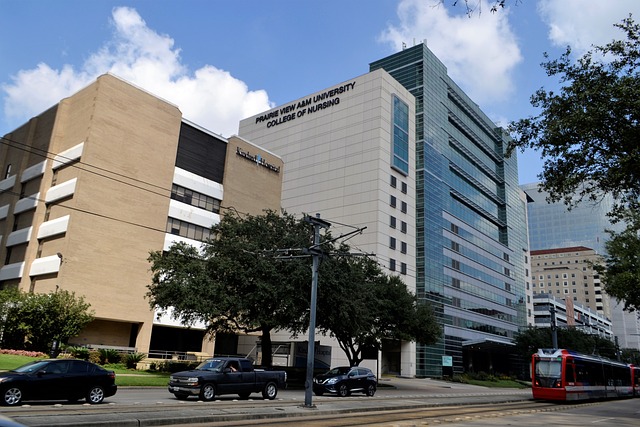Basic Benefits:
For aspiring doctors, studying at a U.S. medical university offers a multitude of benefits that can propel them towards fulfilling careers. Here are seven key advantages:

Cutting-Edge Education in Medical University:
U.S. medical schools are renowned for their rigorous curriculums, incorporating the latest advancements in medical science. Students gain a deep understanding of theoretical knowledge and practical skills, preparing them for the complexities of modern medicine.
Advanced Facilities and Technology:
Many U.S. medical universities boast state-of-the-art facilities equipped with cutting-edge technology. This allows students to gain practical experience with advanced diagnostic tools and treatment modalities, ensuring they graduate prepared for real-world scenarios.
Renowned Faculty and Mentorship:
U.S. medical schools attract world-class professors and researchers who are at the forefront of their fields. Students benefit from personalized mentorship, gaining invaluable insights and guidance from these esteemed medical professionals.
Diverse Research Opportunities:
The U.S. heavily invests in medical research, and universities often house leading research institutions. This opens doors for students to participate in groundbreaking research projects, contributing to advancements in healthcare and gaining valuable research experience.
Exposure to a Multicultural Environment:
The U.S. is a melting pot of cultures, and medical schools reflect this diversity. Students have the opportunity to interact with patients and colleagues from various backgrounds, fostering cultural competency and communication skills crucial for successful medical practice in today’s globalized world.
Strong Residency Programs:
Residency programs provide crucial hands-on training for aspiring doctors. The U.S. boasts highly competitive residency programs at top hospitals, offering graduates the chance to hone their skills under the guidance of experienced physicians.
Globally Recognized Degree:
A U.S. medical degree is highly respected worldwide, opening doors to career opportunities across the globe. Graduates gain the flexibility to pursue their medical careers internationally, if they choose.
Additional Considerations:
While the U.S. medical school system offers undeniable advantages, it’s important to consider some additional factors:
Rigorous Admissions Process:
Acceptance into U.S. medical schools is highly competitive. Students should prepare for standardized tests, maintain exceptional academic records, and demonstrate strong extracurricular involvement, particularly in healthcare settings.
Financial Investment in Medical University:
U.S. medical education can be expensive. Students should explore scholarship opportunities, financial aid programs, and loan options to manage the cost of their education.
Lifestyle Considerations:
Medical school is demanding, requiring long hours of study and dedication. Students should be prepared for a rigorous academic and training environment.
A Path to a Fulfilling Career:
A U.S. medical degree opens doors to a world of possibilities. For those driven to alleviate suffering, advance medical science, and make a significant impact on the lives of others, studying at a U.S. medical university can be a transformative experience. With its world-class education, cutting-edge facilities, and diverse opportunities, a U.S. medical school can equip aspiring doctors with the tools and knowledge they need to become exceptional healthcare professionals. While the journey requires dedication and planning, the rewards of a U.S. medical education can empower graduates to pursue fulfilling careers that make a lasting difference in the world.

Beyond the M.D.: Exploring Specialized Programs:
The U.S. medical education system caters to diverse aspirations within the medical field. Beyond the traditional M.D. program, universities offer specialized programs like:
M.P.H. (Master of Public Health):
Ideal for those interested in healthcare policy, epidemiology, and population health.
M.S. in Biomedical Sciences:
Focuses on research and laboratory skills, preparing students for careers in research or further doctoral studies.
Dual Degrees (M.D. /Ph.D.):
Combines medical training with a Ph.D. in a specific scientific field, fostering expertise in both clinical practice and research.
Exploring these specialized programs allows students to tailor their education to their specific interests, opening doors to unique career paths within the vast healthcare landscape.